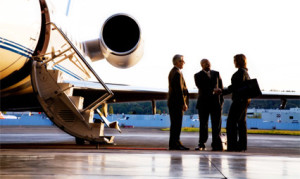 An MBA in aviation is a worthy academic investment, but only if the student is primarily interested in working aviation management for the rest of their career. Below discusses why aviation managers should consider obtaining an aviation MBA.
An MBA in aviation is a worthy academic investment, but only if the student is primarily interested in working aviation management for the rest of their career. Below discusses why aviation managers should consider obtaining an aviation MBA.
What is an Aviation Manager?
An aviation manager is an airport administrative professional who ensures all airport operations are safely and efficiently run in compliance with local, state and federal rules and regulations. They also perform common managerial tasks, such as hiring new employees, training current employees and properly responding to and resolving emergencies. Aviation mangers usually have a bachelor’s degree in aviation management or administration. Sometimes they may also have a degree in public, finance or business administration. Airports are public facilities that run 24 hours a day, so aviation managers can expect to work long hours during evenings, weekends and holidays.
The Path to Becoming an Aviation Manager
Aviation managers will be expected to have a degree that has taught them about applied operations, aviation laws and policies and safety management and air transportation administration. Many colleges partner with local airports to offer internships to aviation management students, who will also be then expected to obtain certification through the American Association of Airport Executives (AAAE). This organization offers both lower-level and advanced certification programs for aviation managers. It is highly recommended that recent graduates obtain AAAE’s Certified Member (CM) credential through passing their rigorous 180 multiple-choice question exam.
An Aviation MBA Offers Career Advancement Opportunities
After successfuly obtaining their degree and certification, entry-level aviation managers will eventually want to advance their career. An MBA in aviation is the primary way that aviation managers can prove their competency and qualifications for advanced positions. The secondary way is to pass the AAAE’s Accredited Airport Executive (AAE) exam. The eligibility requirements for this test are a bachelor’s degree or at least eight years of civil airport management experience. The exam candidates must not only pass a multiple-choice test, but also submit a writing assignment and complete an interview. The AAE credential is typically required by large or international airports.
Aviation MBA Overview
The ultimate goal of aviation MBA programs is to prepare the graduate to take on advanced leadership roles in their airport through endowing them with the right skills, abilities and knowledge. Aviation MBA programs will provide the student with critical analytic and organizational skills that airport decision makers need. Upon graduation, students will be able to apply their broad knowledge and independent thinking to help aviation organizations address and overcome typical aviation industry problems. Graduates will be able to successfully communicate with and lead teams made up of national and international people. Most importantly, an aviation MBA trains the graduate to apply scientific methodology to explore solutions to seemingly unsolvable aviation industry problems.
Aviation MBA Curriculum Overview
MBA programs typically provide basic classes that cover standard topics, such as economics, budgeting, accounting, statistics, operations research and international business. Aviation MBA classes will also provide HR, project and organizational management classes. Industry specific classes, such as airline and airport operations, will empower graduates to excel in the difficult position of senior aviation manager.
To wrap up, aviation managers are professionals who provide oversight and leadership in airports. An MBA in aviation is a worthy investment for students who want to dedicate their careers to public service and aviation management.
See also: What are Some of the Most Unique MBAs?
 Follow
Follow